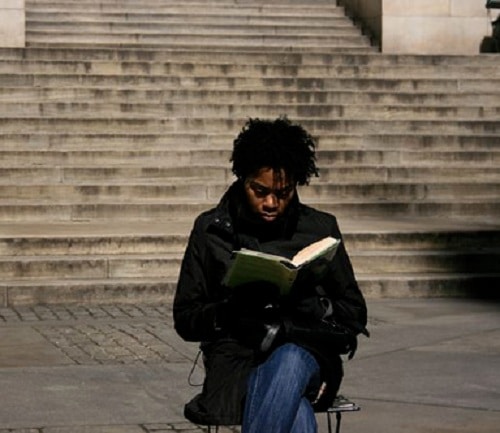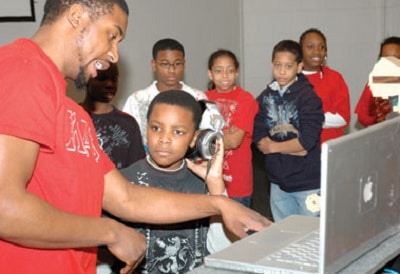One night while doing my usual browsing of the entertainment news site Buzzfeed, I found a post titled “My 2015 Reading List Includes Nothing Written by White Men.” Intrigued, I read it and saw that the author (who is a Black female) decided to take this challenge due to “the over-representation of white male authors,” which caused her to read only those types of books.
When I saw this challenge and its reason, I applauded her taking the challenge because I can relate to her reason for doing so. Until last year, I read very little fantasy fiction featuring people of color because I did not know how much existed. All the fantasy fiction novels I’ve read featuring POC, I’ve had to search for them myself using the Web.
The first fantasy book I read with a person of color, I found through the site Goodreads. Three years ago, I did a search for YA fantasy books with Asian mythology and found a list of books based on Non-Western mythology. I ended up reading the book “Eon” by Alison Goodman and enjoyed it so much that I read its sequel, “Eona.”
The main reason I wanted to suddenly read YA books with Asian mythology was because I was tired of reading fantasy books with white characters. While some of my favorite fantasy books did involve white characters, I started to see the same old plots and characters coming up, especially after the popularity of the “Twilight” series.
The other reason was because I am a Black and Asian woman who grew up being exposed to Asian culture and Japanese anime. Somewhere between watching a dragon dance on a Chinese New Year video and learning about the Rabbit in the Moon myth that inspired Sailor Moon, I had developed an interest in Asian mythology and folklore. However, the same could not be said of African mythology and folklore.
Until last year, I did not know African mythology and folklore existed, let alone Black fantasy authors. Just as with the book “Eon,” I discovered Black speculative fiction and African mythology through the Web. As I did so, I wondered why I didn’t see any Black speculative fiction mentioned in popular culture or mainstream media.
On top of the lack of exposure, diverse books featuring people of color face another problem in mainstream publishing known as whitewashing.
Read more from Latonya Pennington at Black Girl Nerds




